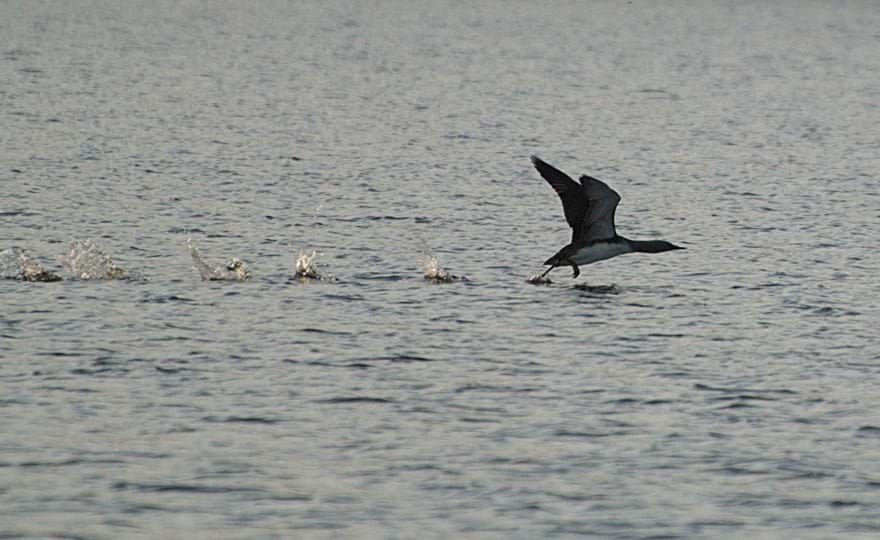ClientEarth Communications
5th November 2020


The Aarhus Regulation Amendment: Cause for cautious celebration?
On 14 October the European Commission published its long-awaited proposal to amend Regulation 1367/2006/EU, the so-called Aarhus Regulation. The stated intention of the proposal is to “improve the implementation of the Aarhus Convention” by revising the internal review mechanism “for the benefit of NGOs with regard to administrative acts and omissions of EU institutions and bodies”.
Read the analysis by Anne Friel
The European Commission’s communication on improving access to justice: Roadmap for action or cover for non-action?
On 14 October, the European Commission adopted a legislative proposal to amend Regulation (EC) No 1367/2006 (the Aarhus Regulation) – see our analysis here. On the same day, the Commission also published an accompanying communication on improving access to justice in environmental matters in the EU and its member states. The documents are supposed to cover deficiencies in access to justice in environmental matters at the EU level identified by the Aarhus Convention Compliance Committee (ACCC) in its findings in 2017. This post gives a brief introduction to the Commission’s Communication.
Read the analysis by Ewa Dabrowska
Digging a moat to protect the castle walls: CJEU solidifies barriers to NGO standing
On 2 September 2020, the Court of Justice confirmed that the NGO Mellifera had no standing to challenge the European Commission’s authorization of the herbicide glyphosate. Mellifera had sought to overturn the General Court’s judgement in case T-102/17, previously analysed in this newsletter (see here). The Court of Justice judgement does not only confirm the limited standing of NGOs to challenge EU acts by way of internal review, the Court also ordered the applicant to pay the costs of the intervening party (Bayer), thus adding yet another access to justice barrier.
Read the analysis by Sebastian Bechtel
The European Commission’s Rule of Law Report – what’s all the fuzz about?
On 30 September the European Commission unveiled its Rule of Law Report, its first rule of law audit of all EU member states. The report is a part of the comprehensive European Rule of Law Mechanism announced in the Political Guidelines of the President of the European Commission Ursula von der Leyen. The Rule of Law Report consists of a general report and 27 country chapters presenting the Member State-specific assessments. The work focused on four main pillars: the justice system, the anti-corruption framework, media pluralism, and other institutional checks and balances. Whereas all of these areas are crucial for efficient environmental democracy, protecting rule of law in the justice systems of Member States goes to the core of access to justice in environmental matters.
Read the analysis by Ewa Dabrowska
Court of Justice confirms Habitats Directive screening applies to temporal extensions of construction permits
On 9 September 2020 the Court of Justice (CJEU) rendered judgment on a preliminary reference from the Irish High Court in a case brought by an environmental NGO, Friends of the Irish Environment. The judgement, which follows the Advocate General’s opinion (see our analysis here), clarified the obligations of Member State authorities under Article 6(3) of the Habitats Directive (92/43) in regard to temporal extensions of construction permits.
Read the analysis by Ewa Dabrowska
Webinar – “The EU Internal Review Mechanism: Access to justice for environmental NGOs under the Aarhus Regulation” – 16 November 2020, 1pm (Brussels time)
This webinar will focus on access to justice for environmental NGOs under the Aarhus Regulation.
Consult agenda and sign up here
Webinar – “Access to justice in environmental matters under the European Convention on Human Rights” – 24 November 2020, 1pm (Brussels time)
This webinar will focus on access to justice in environmental matters under the European Convention on Human Rights.
Consult agenda and sign up here
ClientEarth’s Summit - 9 to 11 November 2020
ClientEarth will be convening conversations for a solutions-focused exploration of the environmental issues facing us all. Among other topics, we will discuss how we can use the law to protect people and the environment, with speakers from Bloomberg, 350.org, WWF and many more. Please note that this event is not part of our EU-funded project on access to justice.
Find out more about this event and register
Access to Justice seminar in Budapest – September 2020
Justice & Environment organized a 5th training in Hungary, as part of the A2J EARL project.
Read report and download presentations here.
Watch replay of our virtual conference “Access to justice in environmental matters: obstacles, impacts and ways forward”
Last October, ClientEarth organised a conference gathering representatives from EU institutions and Member State authorities, legal professionals, judges and NGO representatives from all over Europe to discuss and share insights on access to justice in environmental matters.
Watch replay of any former webinar on Access to justice.
In the past year, we have organised 10 webinars on the European legal framework applying to access to justice in environmental matters. Those webinars are intended for public interest lawyers, judges, public authorities and NGOs. Recordings are available on the links below.
Access to Justice is a fundamental means through which citizens and NGOs can support the implementation and enforcement of laws and policies to protect the environment.
The goal of this ATOJ-EARL project is to achieve “Access to Justice for a Greener Europe”. It strives to enhance access to justice in environmental matters by providing information, training and support for the judiciary, public authorities and lawyers of eight European member states.
ClientEarth and Justice and Environment are implementing this project with the financial support of the European Commission’s LIFE instrument.